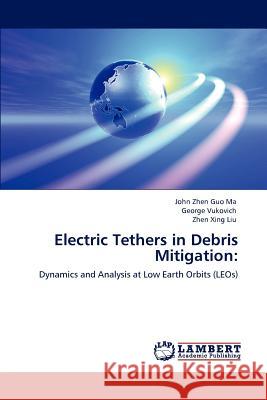Electric Tethers in Debris Mitigation » książka
Electric Tethers in Debris Mitigation
ISBN-13: 9783846559178 / Angielski / Miękka / 2011 / 184 str.
Orbital debris poses significant risks to space activities and is a threat extending into the foreseeable future. While identification and tracking of orbital threats is actively pursued in general, we focus on deorbiting very small satellites of the nanosat or cubesat size with miniature tether systems. Ch.2 describes the basic principles of electric tether physics, and outlines the geophysical environment of LEOs where tethered nanosat flying occurs. Ch.3 develops an equivalent circuit model of an electrodynamic (ED) tether system, and illustrates the surge currents and overvoltages under various operating modes. Ch. 4-6 discuss the nonlinear characteristics of electrostatic (ES), ED, and more promising hybrid ES-ED tether dynamics, and the application of tethered systems. Ch.7 summarizes the work, with some related discussions. The work was initiated at Chinese Academy of Sciences (CAS, 1995-1997; 2001-2003), and is funded by Visiting Fellowship in Canadian Government Laboratories Program (2009-2012), Natural Sciences and Engineering Research Council (NSERC), Canada. We thank Dr. Alfred Ng, Manager (Control and Analysis), Canadian Space Agency (CSA), for support and advice.











